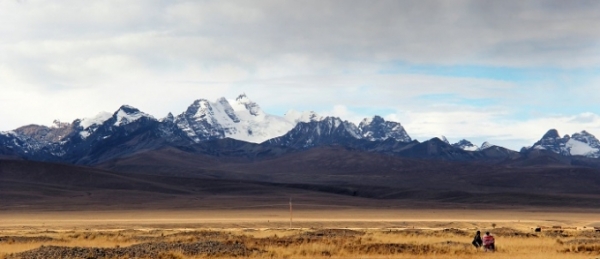Climate Change Causes Risk to Tropical Andes Mountains

The Intergovernmental Panel on Climate Change (IPCC) has estimated that 20 to 30 percent of the world's species are likely to be at increased risk of extinction as a result of climate change. Other estimates have suggested that 15 to 37 percent of species may be committed to extinction due to climate change by 2050. Yet these estimates have been largely controversial.
In this latest study, the scientists focused on trees that are restricted to the highest elevations in the Andes. More specifically, they looked at the upper montane forest and cloud forest ecosystems.
"Species living at the top of tropical mountains are thought to be among those most at risk of climate change," said Natalia Tejedor-Garavito, one of the researchers, in a news release. "While species in lowland areas can potentially migrate as the climate changes, those that live on the mountain tops literally have nowhere else to go."
In all, the researchers assessed 129 species of trees that are endemic to the region. The scientists found that climate change increased the risk of extinction of 18 to 20 percent of the species, depending on the climate scenario adopted. The researchers also used a new metric that enables quantification of this risk, relative to other pressures affecting biodiversity.
"This research shows that while climate change is certainly an important threat to species, there are many other factors that are currently increasing the extinction risk of species in montane tropical forests," said Adrian Newton, one of the researchers.
The findings reveal that conversations efforts need to address the multiple factors currently affected biodiversity, rather than focusing exclusively on climate change.
The findings are published in the journal PLOS One.

Facebook comments